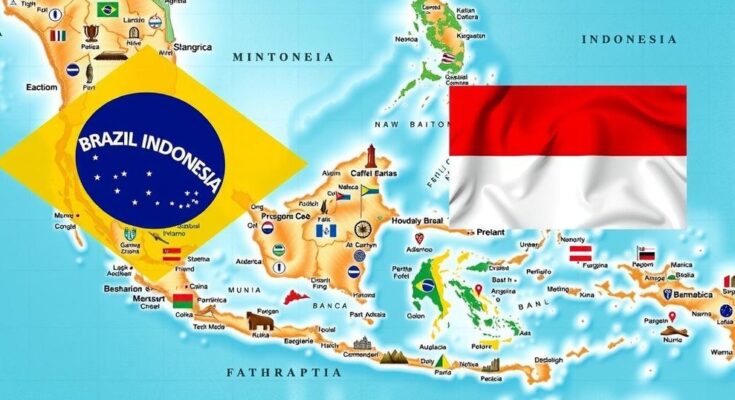Indonesia has been welcomed as a new member of BRICS, marking its entry as the largest economy in Southeast Asia. This move aligns with Brazil’s presidency theme of enhancing Global South cooperation and reforming global governance. The inclusion was officially confirmed in 2024 following Indonesia’s formal application after establishing a new government, and closely follows the collective expansion of BRICS to include other nations.
The Brazilian government has officially welcomed Indonesia as the newest member of BRICS, recognizing its status as the largest economy in Southeast Asia and its substantial population. This inclusion aims to enhance the collaboration across the Global South by promoting necessary reforms in global governance institutions. Brazil’s current presidency is centered on the theme of fostering inclusivity and sustainability within international governance frameworks.
Indonesia’s application to join BRICS occurred post the establishment of its new government, and its membership was approved by consensus among BRICS nations. This decision aligns with previously established principles and criteria during the expansion talks held in Johannesburg.
The BRIC grouping initially formed in 2006 following discussions among the leaders of Russia, India, and China. It formalized further from discussions on the sidelines of the United Nations General Assembly. Subsequent expansions have seen South Africa joining in 2010, and additional countries such as Egypt, Ethiopia, Iran, Saudi Arabia, and the United Arab Emirates were accepted in 2024, marking significant growth in this collective.
The BRICS association, originally termed BRIC, was initiated in 2006 by Russia, India, and China, aimed at fostering international cooperation among large emerging economies. This grouping later expanded to include South Africa, becoming BRICS in 2010, further reinforcing collaboration among these major nations. Recently, the inclusion of Indonesia marks another significant step, reflecting the evolving dynamics of global economic cooperation, particularly emphasizing the interests of developing nations. Indonesia’s role is anticipated to enhance advocacy for inclusive global governance, aligning with Brazil’s thematic presidency focused on Global South dynamics.
In conclusion, the accession of Indonesia to the BRICS group signifies a strategic move towards enhancing cooperation among emerging economies in the Global South. The expansion reflects a collective commitment to reforming global governance structures while advocating for inclusivity and sustainability. The continued growth of BRICS with new members heralds an era of more robust partnerships in addressing global challenges, ultimately contributing to a balanced geopolitical landscape.
Original Source: m.economictimes.com




